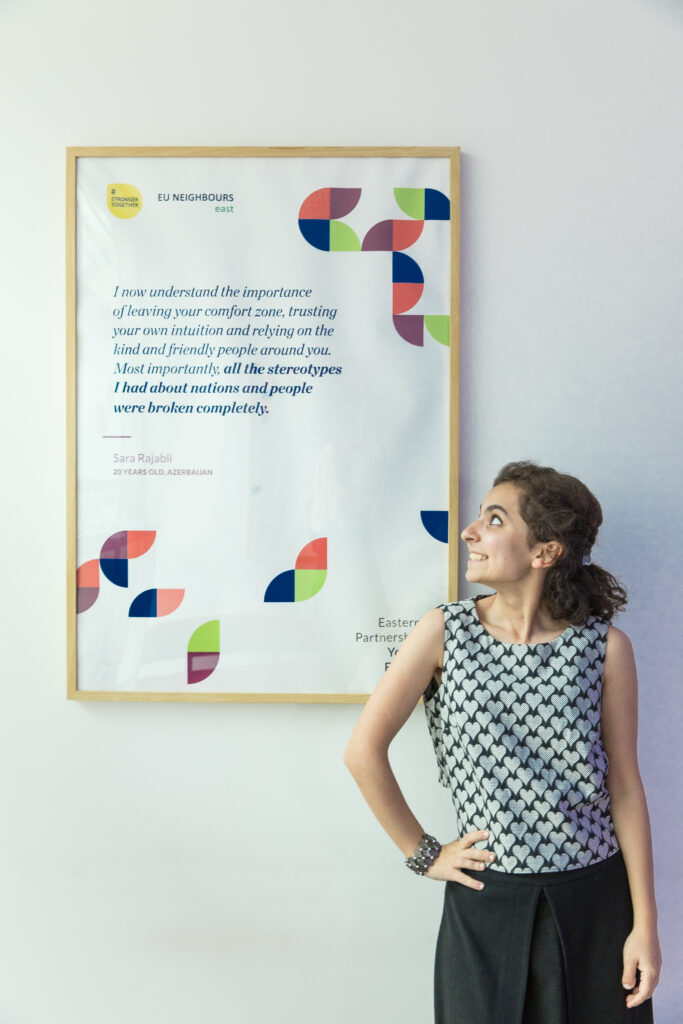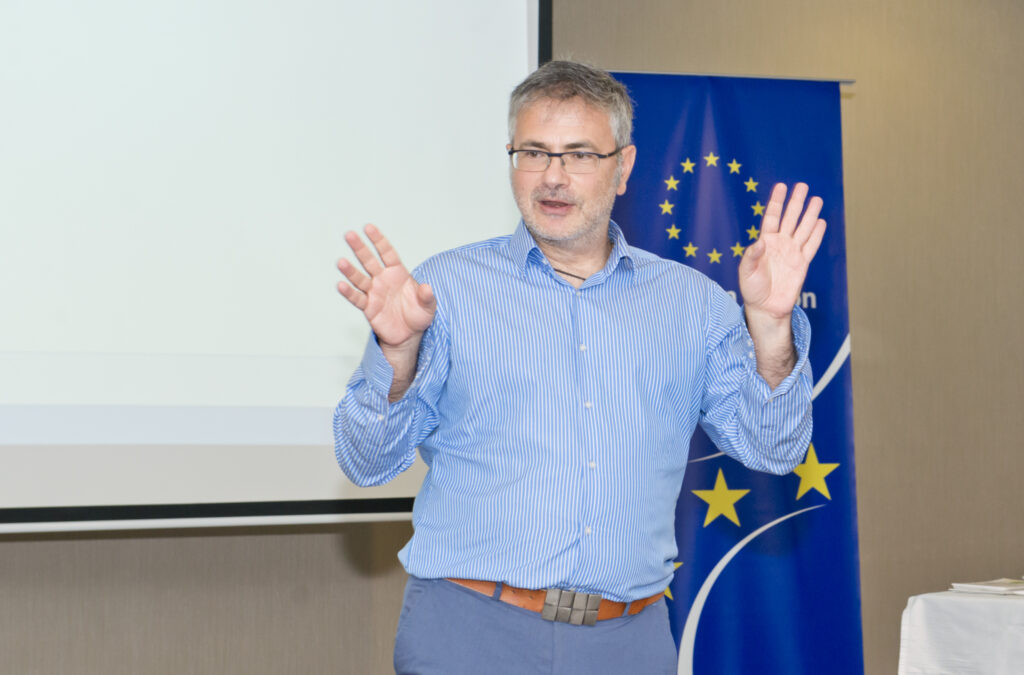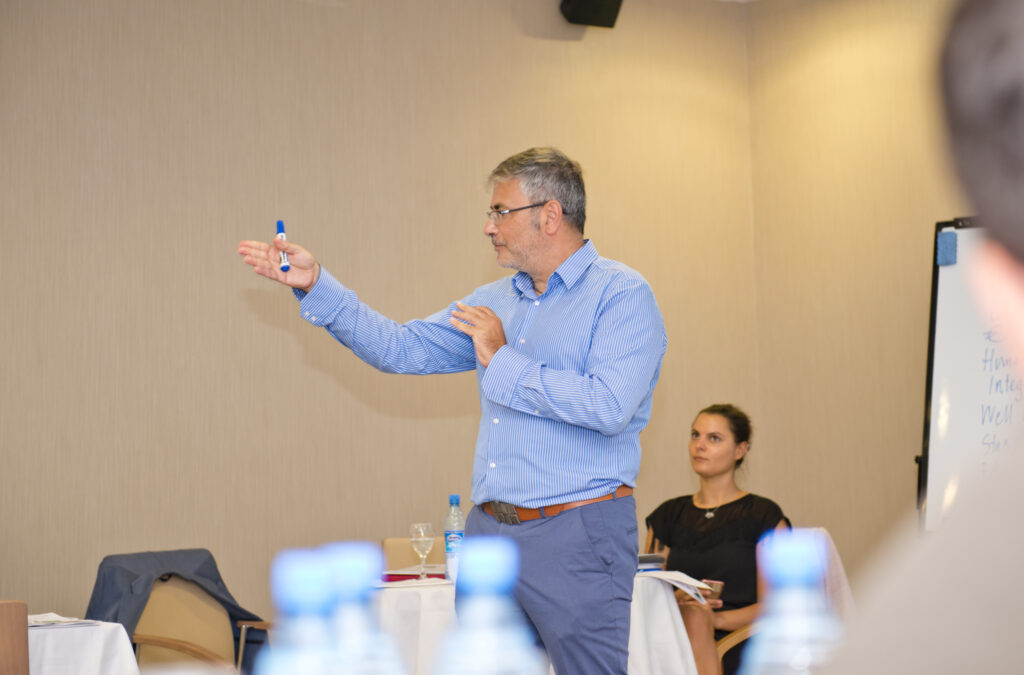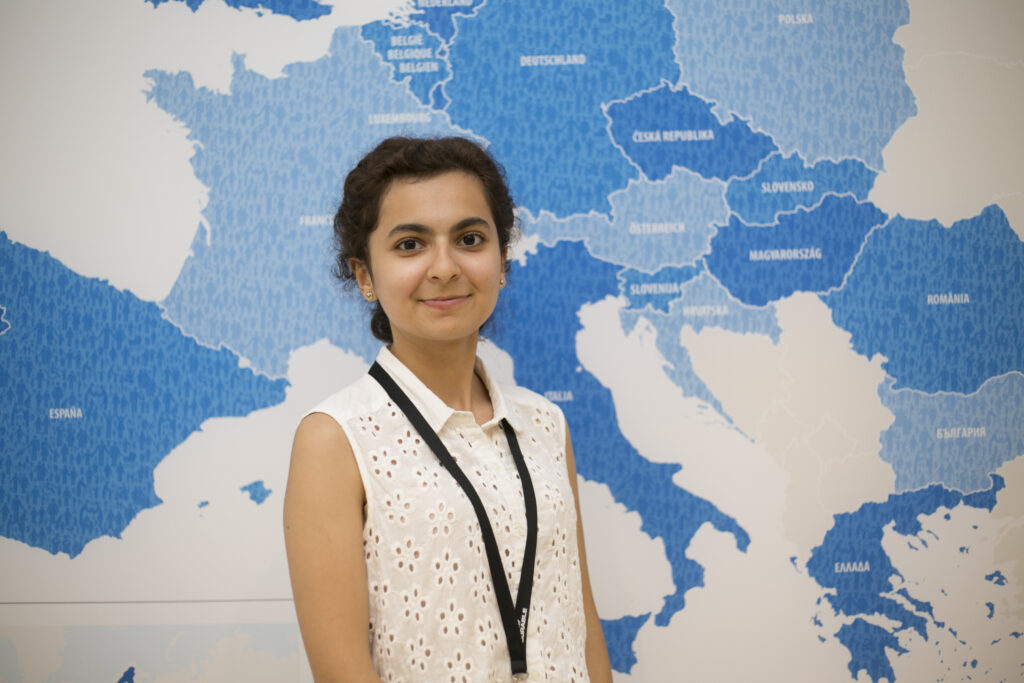
Travel as a part of personal development
Travel is becoming increasing popular, particularly among young people. In February this year, Young European Ambassador Sara Rajabli and her colleagues capitalised on this popularity by holding an event about the potential of travel to boost personal development.
The key speaker at our event was Mr Denis Daniilidis, an official from the EU Delegation to Azerbaijan and experienced traveller. Originally from Greece, Mr Daniilidis has travelled to 85 countries, lived in the Eastern Partnership region, Latin America and Central Asia, and speaks 7 languages fluently. When I was first thinking about organising the event, Mr Daniilidis kept coming to mind along with the amazing photos from different parts of the world that he could share with our audience.
We received 78 applications and more than 30 participants at the event. In a medium-sized room, we set up a table covered in books, postcards and photos from various countries. Mr Daniilidis told stories related to each of them and it was then that we realised how travellers can be an invaluable source of information and experience about other countries. For me personally, it was great to learn about a small German community in Bolivia and their conservative lifestyle.
Throughout his presentation, Mr Daniilidis emphasised the importance of breaking down stereotypes and recommended that all travellers discover the stories behind everything they saw, felt, heard and touched. Every picture and video showed the wildness of nature and the lifestyles of local people without any technology, electricity or infrastructure. We learned that he had travelled to a number of unknown and unexplored places alone, sometimes as a result of planning but often spontaneously. Hearing him speak was not only interesting, but also allowed us to learn about how people and nature coexist in environments we’re not familiar with.
The event also included discussions with the audience. Mr Daniilidis asked participants about their most memorable trips, the places they most wanted to visit and their reasons. Women mentioned the importance of safety and said they would therefore prefer to go to developed countries in Europe, the USA, etc. Mr Daniilidis also asked what travelling had brought into the lives of the participants and got answers about breaking stereotypes, leaving comfort zones and exploring new sides of their potential.
Participants were able to ask questions too, with food being a particularly popular subject. Mr Daniilidis suggested that people often set themselves up for disappointment by comparing their national food to other countries’ cuisines and recommended that they should try to understand and accept the differences in lifestyles between countries instead. While his own culinary experiences had varied, he said, he’d never regretted trying something new.
Throughout the presentation and discussions, every participant listened with great attention and that was great to see. I couldn’t even imagine a better presentation about travelling and breaking down stereotypes. I began to see how Mr Daniilidis used the important lessons he’d learned from his travels in his professional life. He was able to adapt to each new environment and country of appointment easily, being prepared for the unexpected and open to new things.
So, young people of Azerbaijan, take advantage of all the opportunities you’re given, embrace new environments, take care of yourself and always be young in your soul. Our age is just a number!
Read more:
Delegation of the European Union to Azerbaijan – website
“Success stories: Women of Azerbaijan realise their dreams with the EU’s support” – feature story
“Top tips for travelling the EU on a budget” – blog post
“Free to Travel” – Facebook page
 Travel as a part of personal development
Travel as a part of personal development Travel as a part of personal development – Mr Denis Daniilidis
Travel as a part of personal development – Mr Denis Daniilidis Travel as a part of personal development – Mr Denis Daniilidis
Travel as a part of personal development – Mr Denis Daniilidis Travel as a part of personal development
Travel as a part of personal development
LATEST

How you can help the planet every day

Building Europe: Poland’s experience of joining the European Union and lessons for Ukraine

World Health Day 2024: My Health, My Right

EUREKA MEETS EUROPE – opportunities to develop and study. My experience

Can you wear pink in the workplace?
More campaign pages:
Interested in the latest news and opportunities?
This website is managed by the EU-funded Regional Communication Programme for the Eastern Neighbourhood ('EU NEIGHBOURS east’), which complements and supports the communication of the Delegations of the European Union in the Eastern partner countries, and works under the guidance of the European Commission’s Directorate-General for Neighbourhood Policy and Enlargement Negotiations, and the European External Action Service. EU NEIGHBOURS east is implemented by a GOPA PACE-led consortium. It is part of the larger Neighbourhood Communication Programme (2020-2024) for the EU's Eastern and Southern Neighbourhood, which also includes 'EU NEIGHBOURS south’ project that runs the EU Neighbours portal.

The information on this site is subject to a Disclaimer and Protection of personal data. © European Union,